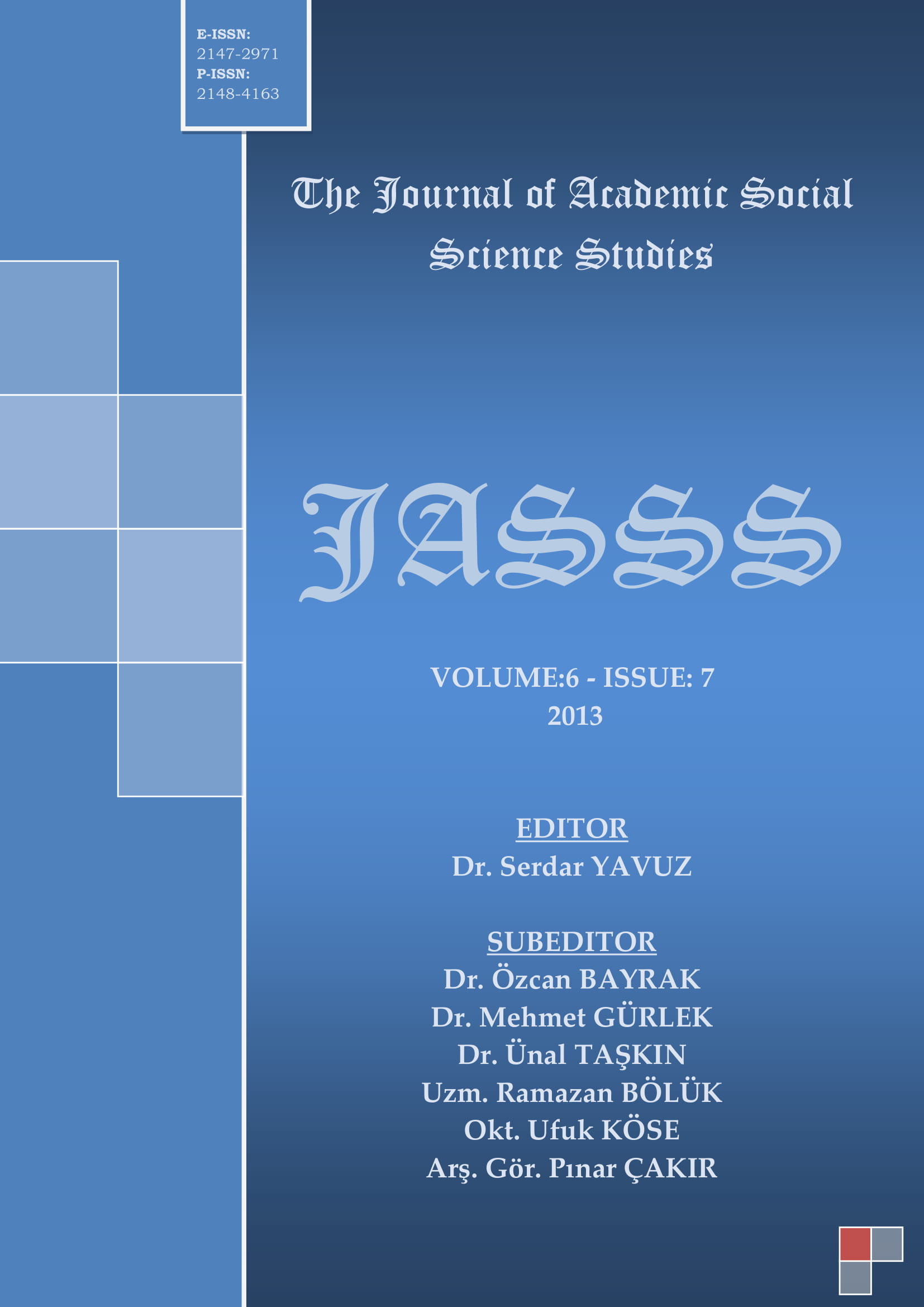Author :
Abstract
Karşıt görüşlerin aynı amaca hizmet ettiği bir ortamda dünyaya gelen Erişirgil, dönemin hastalığını iyi analiz etmiş ve çareyi pragmatizmde görmüştür. Sistemini oluştururken maddi ve manevi tüm fikirlerin incelenmesi gerektiğini savunmuş ve sadece bir alanın doğruluğuna inanan fikirlerle mücadele etmiştir. Bu çalışmamızda Erişirgil’in fikri teşekkülünde etkin olan akımları inceledik. Bu akımlar, hastalığı tespit etmelerine rağmen bakış açılarını tek yöne çevirmişlerdir. Bu da çözümün birçok parçaya ayrılması anlamına gelmektedir. Düşünür, bu sorunu idrak etmiş ve çareyi bütün parçaları birleştirmekte görmüştür. Bu yolu takip, salt birleştirme şeklinde olmamış, dönemin ruhuna uyan ve probleme cevap veren yönlerin alınması amaçlanmıştır. Bu bağlamda amaca uyan akım Erişirgil için pragmatizm’dir. O, Cumhuriyet’ten önce pragmatizmi devletin bekası için esas alırken sonraki dönemde onu ahlak ve eğitim alanlarında uygulamaya çalışmıştır. Rejimsel problemlerin hala varlığını sürdürmesine rağmen o dönemde böyle bir akımı yaymaya çalışmak önemli bir olgu karşımıza çıkmaktadır. Bu anlamda Erişirgil, yeni devletin teşekkülünde –özellikle eğitim ve ahlak alanında- önemli bir role sahiptir. Düşünürün diğer önemli özelliği ise harf inkılabı gibi önemli bir yenilikte başkan rolünü üstlenmesidir. Bu görevi yerine getirmesine rağmen inkılaba tam olarak taraftar olduğunu söyleyemeyiz. Bu anlamda doğru bildiğinden taviz vermeyen, yeri ve zamanı geldiğinde yanlışlığı tüm içtenliğiyle ifade eden bir düşünür, siyasetçi, yönetici, bakan olarak Erişirgil’i gösterebiliriz.
Keywords
Abstract
Erişirgil was born in an environment which the opposing views serve the same purpose, has well analyzed disease of period and seen that the remedy is pragmatism. He has defended to need look at all the moral and material ideas while he was creating own system and fought with ideas which just believe in the accuracy of a field. İn this study, we have examined the currents which was been active in Erişirgil's intellectual formation. These currents were turned their perspectives in one direction although they were detected the disease. This also means that the solution separated into multiple sections. The thinker has perceived the problem and seen the remedy as combining all the parts. Following this path, not only has happened in the form of combining, it was intended to take aspects that follow the spirit of the period and responding to problems . In this context, the current that was suitable for the purpose was pragmatism for Erişirgil. Before the Republic he was used to pragmatism in order to survival of the state. Then he was tried to apply the pragmatism to fields of education and morality. Despite the problems related to the regime is still maintaining a presence at the present time, it was an important phenomenon that spread the work of such a current at that time. In this context Erişirgil has an important role especially in the field of education and morality in the formation of the new state. Another important feature of the thinker was been taken an important role as a chief executive in the word revolution. Despite the fulfillment of this task, we can not say that he internalized the word revolution exactly . In this sense it can say that Erişirgil who does not compromise his rights, state the remarks in all sincerity as thinker, politician, manager when it comes to the time and place.
Keywords
- BAYRAKTAR, Levent, Bergsonculuğun Türkiye’ye Girişi ve İlk Temsilcileri, Felsefe Dünyası, sy.28, 1998.
- BERKES, Niyazi, Türkiye’de Çağdaşlaşma, Yay. Hz: Ahmet Kuyaş, Yapı Kredi Yay, İstanbul, 2009.
- 43 M.E. Erişirgil, 2010, s.67
- 44 M.E. Erişirgil, Kadın-Erkek, Hamle Mat, İst. 1960, s.69-70
- ERİŞİRGİL, M. Emin, Kadın-Erkek, Hamle Mat, İst. 1960.
- ERİŞİRGİL, M. Emin, Felsefeye Başlangıç, Milli Eğitim Basımevi, İstanbul, 1950.
- ERİŞİRGİL, M. Emin, Kant ve Felsefesi, İnsan Yay. İst. 1997.
- ERİŞİRGİL, M. Emin, Bildiklerim, Mülkiyeliler Birliği Vakfı, Yay. Haz: Varlık, M. Bülent, Ankara, 2010.
- GEORGEON, François, Osmanlı-Türk Modernleşmesi, Çev: A. Berktay, Yapı Kredi Yay., İstanbul, 2009.
- GÜNDÜZ, Mustafa, Osmanlı Mirası Cumhuriyet’in İnşası, Lotus Yay., Ankara, 2010.
- KARACA, Nuray, 1923-1945 Arası Türk Sosyolojisinde Pozitivist Eğilimler(Doktora Tezi), Erzurum, 2004.
- MARDİN, Şerif, Türk Modernleşmesi, İletişim Yay., İstanbul, 2012.
- TÜRER, Celal, W.James’in Pragmatik Felsefesinde Özgürlük-Ahlak İlişkisi, Felsefe Dünyası, sy.27, 1998.
- TÜRKÖNE, Mümtaz’er, Türk Modernleşmesi, Lotus Yay., Ankara, 2006.
- ÜLKEN, H. Ziya, Türkiye’nin Modernleşmesi ve Bu Hareketin Öncüleri Olan Türk Düşünürleri, Felsefe Dünyası, Sy.28,1998.
- ÜLKEN, H. Ziya, Türkiye’de Çağdaş Düşünce Tarihi, Ülken Yay, İstanbul 2005.





